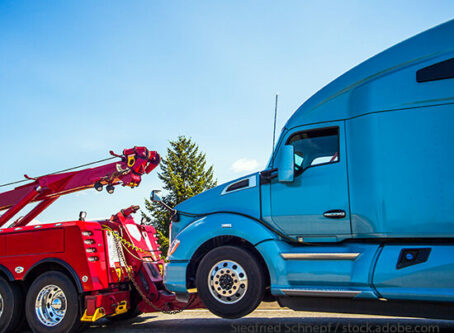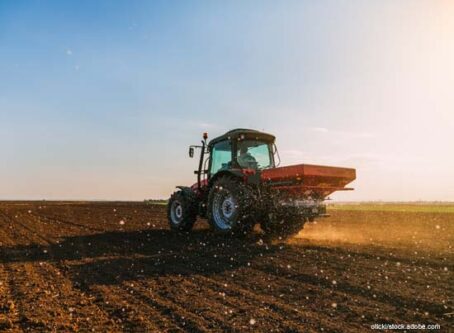Missouri bills offer road funding mechanisms, including fuel tax increases, vehicle fees, tolls
Talks are on-going at the Missouri statehouse for a solution to the state’s $825 million gap in annual road and bridge funding.
A 23-member task force of state officials and private citizens released transportation funding recommendations to the General Assembly early this year.
Among the recommendations is a fuel tax increase. Specifically, the state’s 17-cent-per-gallon tax rate on gas and diesel would be increased by 10 cents for gas and 12 cents for diesel.
Each penny increase in the fuel excise tax is estimated to raise up to $40 million.
With that in mind, multiple state lawmakers have introduced legislation to tap the revenue source for more money.
Senate Transportation Committee Chairman Dave Schatz, R-Sullivan, is behind one of the bills. His bill, SB734, would raise the state’s fuel tax rate by 10 cents for gas and diesel.
Passage at the statehouse would not make the rate increase a done deal. Voter approval would be required.
The state’s Hancock Amendment mandates that any proposed rate hike in excess of two cents must go before voters for final approval. A similar requirement is in place for efforts to add tolls.
The Senate Ways and Means Committee has approved a tax reform bill. One component of the bill, SB617, would increase the fuel tax rate by 2-cent increments over three years. The tax rate would be raised to 23 cents by August 2020.
When fully implemented, the additional revenue would raise about $180 million annually for roads and bridges.
Phasing in the tax increase also would avoid requiring the state to get voter approval.
Also included in the 421-page bill are reductions in individual income tax and corporate tax rates.
Sen. Bill Eigel, R-Weldon Springs, said the bill would lower the overall tax burden for Missourians. He calls the effort “a good compromise.”
Other measures to increase fuel tax rates include the following:
- HB2091 would have voters decide on a 10-cent fuel tax increase.
- HB2092 would have voters decide on a 10-cent gas tax increase and a 12-cent diesel rate hike.
- HB2147 would raise the tax rate by 3-cent increments until tax revenue equals the total income tax revenue reduction from the decrease in the top tax rate of the individual income tax. It also would eliminate the general revenue growth requirement that activates the income tax cut.
- HB2148 would have voters decide on a 10-cent fuel tax increase phased in over five years at 2-cent increments. Alternative fuels would also be increased from 5 cents to 27 cents by 2025.
- HB2149 would have voters decide whether to double the fuel tax rate to 34 cents. Natural gas used for road purposes would also be raised to 34 cents.
- HJR96 proposes a constitutional amendment to raise the fuel rate to 27 cents.
- HJR97 proposes a constitutional amendment to raise the gas rate to 27 cents and the diesel rate to 29 cents.
- SB1090 would increase the gas tax by 2 cents and diesel tax by 5 cents.
Truck groups in the state support efforts to raise revenue for transportation work. OOIDA and the Missouri Trucking Association, however, have called for any tax rate increase to be applied evenly for motorists and truck drivers.
OOIDA Director of State Legislative Affairs Mike Matousek has said his group believes increasing the fuel tax is the most equitable way to generate additional revenue. He has also said a fuel tax increase is the only realistic option for the state.
Other options
Among the options offered by the task force include raising the state’s sales tax rate, tolls, implementing a vehicle-miles traveled mechanism, rerouting revenue from the state’s general fund, and raising vehicle fees.
A separate effort would allow the Highways and Transportation Commission to tap bonds for infrastructure projects in St. Charles County. SB619 would permit issuing up to $65 million in bonds.
Fees
Two measures would increase vehicle fees to get road work done.
Specifically, HB2450 would raise specified license fees related to motor vehicles for inflation based on a formula in the bill. An initial adjustment would occur in January 2020. Additional adjustments would occur every three years.
The second bill, HB2482, would require taxes that include vehicle licensing, registration, highway use, drivers licensing to be adjusted annually for inflation.
Additionally, one bill would establish a “miles-driven” fee. HB2483 would require the state to charge and collect a fee of up to $200 for a one-year vehicle registration. Two-year registrations would cost $400.
The rate would be charged to a 2019 model year or later vehicle.
All revenue would be routed to the state road fund.
Barring federal approval, the state could charge a flat fee or a miles-driven fee on vehicles traveling in the state, but not registered in Missouri.
Voters would get the final say.
Tolls
Tolls are the topic of three resolutions.
HJR74 proposes a constitutional amendment to authorize the state to construct and operate toll roads. Tolls could be collected on interstates and four-lane roadways.
HJR102 proposes a constitutional amendment to authorize the state to collect tolls on highways and bridges in “metropolitan areas.”
HJR85 goes the other way. The proposed constitutional amendment would prohibit the transfer of any public road, highway, or bridge for use as a toll facility.









